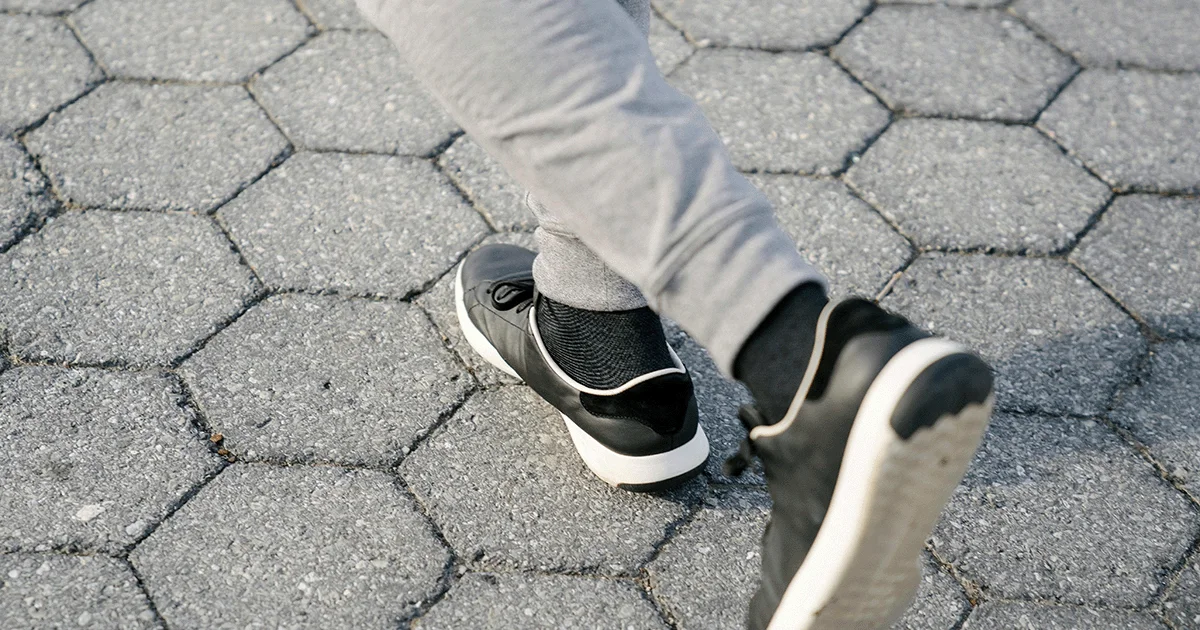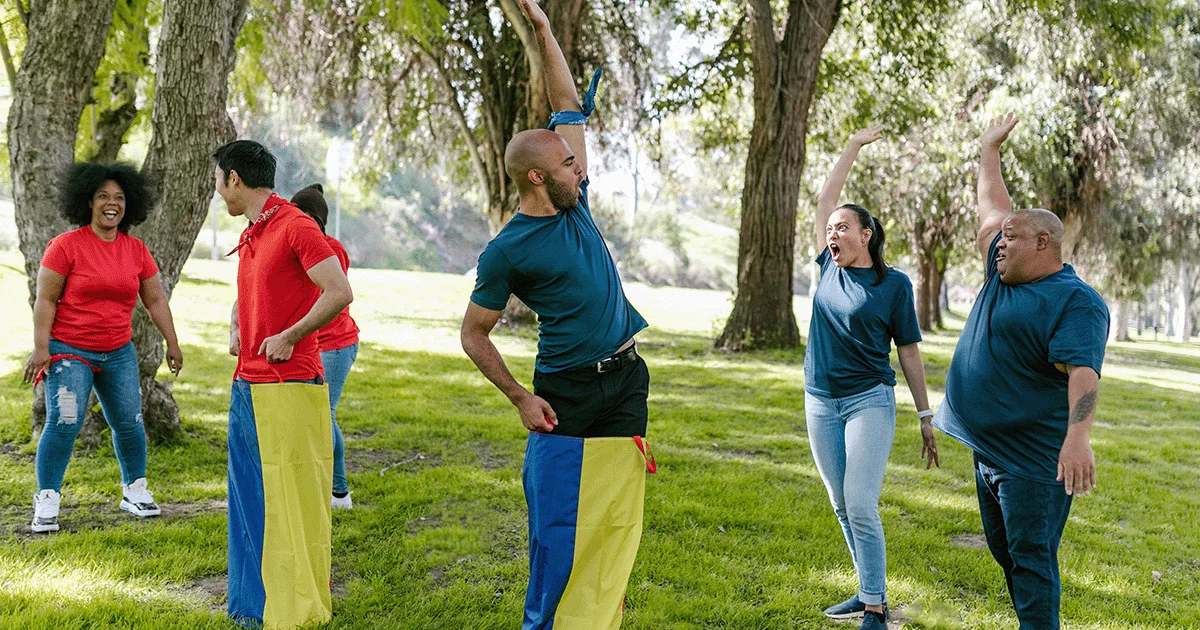Here's what we'll cover
Here's what we'll cover
Here's what we'll cover
Stretching: it sounds like a good idea, but is it really that important? Turns out, yes.
Stretching is about so much more than flexibility. By stretching on a regular basis, you can enjoy benefits including improved power and performance in workouts, as well as day-to-day benefits like less stress and better posture.
Types of stretches
Before we dive into the benefits, let’s review what stretching is. There are many different types of stretches, but some basic ones to familiarize yourself with include (Page, 2012):
Static stretches In this type, you stretch to the point of feeling tension and hold it for a set amount of time (say 20–30 seconds) before releasing. You can then perform the stretch again, or switch to the other side. An example of a static stretch would be holding your arm across your chest to open up your shoulder.
Dynamic stretches: Dynamic stretching is an active form where you repeatedly move your limbs through a full range of motion multiple times. Arm circles and squats are common examples of dynamic stretches.
Ballistic stretches: This type of stretching involves bouncing quickly and aggressively to push yourself to the edge of your range of motion. Ballistic stretching used to be very popular, but is now associated with an increased risk of injury and is not recommended (Page, 2012).
PNF stretches: What’s called proprioceptive neuromuscular facilitation, or PNF for short, involves contracting a muscle before getting into the stretch. This is typically done with the help of a partner or resistance band.
Benefits of stretching
If you’ve been skipping out on stretching, here are six reasons why it’s time to add them back into your daily wellness routine.
1. Increased flexibility and range of motion
Regular stretching improves flexibility, making it easier to perform everyday activities without injury. It also protects us from mobility issues that crop up as we age. Both static and dynamic stretches help increase the range of motion in your joints (Page, 2012).
2. Better physical performance
Incorporating static or dynamic stretches into an exercise warmup can boost your performance during your workout.
Static stretching is great for athletes who rely on flexibility, such as dancers or gymnasts. On the flip side, dynamic stretches may help relieve stiffness and increase muscle power for those involved in running or jumping like basketball players (Page, 2012; Opplert, 2018).
3. Improved circulation
Want better blood flow? Start stretching. In one study, stretching was included as part of a rehab program for people who had experienced a heart attack. At the end of the study, stretching was found to improve peripheral circulation (Hotta, 2013).
4. Better posture
If you work a sedentary job as many of us do these days, it’s hard not to hunch over your computer or slouch in your chair.
We now know these habits worsen posture and increase the risk of back pain. With daily stretching, you not only become more aware of your muscles but may also be able to maintain better posture.
5. Less back and shoulder pain
Many studies have found people who adopt a regular stretching routine report less back pain.
One study incorporated stretching as part of a posture correction program. By the end of the program, the participants reported significantly less pain in the shoulders, middle, and lower back (Kim, 2015).
6. Stress relief
When you’re feeling stressed, you carry more tension in your muscles than you may realize. Stretching helps you relax, both physically and emotionally.
One study found that after stretching, people felt significantly less muscle tension (the physical part) and sadness (the emotional part) (Carlson, 1990). Another study showed that in addition to back pain relief, a regular stretching regimen made people feel happier and more energetic (Sherman, 2013).
Beginner stretching exercises
New to stretching? Don’t worry about stretching every single muscle and just focus on any ones you’ll be using or muscles that feel tight.
If you’re focused on the lower body, aim for stretches that focus on the hips, quads, hamstrings, and calves. Up top, be sure to stretch out your neck, back, and shoulders.
Here are some beginner stretches to get you started.
Runner’s lunge
Get into a low lunge placing your right foot forward. To open up the hip flexors, place your hands on your right knee and push forward gently to stretch.
Make sure your knee is at a 90-degree angle directly over top of your ankle or slightly behind.
Lean forward and place your fingers on the floor on either side of your right foot. Keep your back and left leg straight and your head looking forward.
After 30 seconds release and repeat on the left side.
Forward fold
Stand up tall with your feet about hip-width apart.
Keeping your legs straight, hinge from the hips and bend down towards your feet until your hands reach the floor.
If your hands don’t touch the floor, that’s okay. Just drop your head and dangle your hands down letting gravity do the work for you.
Hold the stretch for 30 seconds.
Slowly roll back up keeping your core strong. Raise by bending your knees and holding weight in your legs, not your back.
If you want to add a little chest opener, try this:
Stand up tall with your feet hip-width apart. Clasp your hands behind your back.
Then bend forward slowly, again hinging at the hips and keeping a flat back.
With your arms straight, let your head and arms drop toward the floor as far as feels comfortable.
Hold for 30 seconds.
Come up slowly and repeat with your hands clasped the other way.
Spinal twist
Sit on the floor cross-legged.
Keeping your left leg on the floor, cross your right leg over it. The right foot should be by your left knee, pointing forward. Keep your right hip grounded on the floor, with your left foot pointed.
With your back straight, slowly twist your upper body to the right. You can push your left elbow against your right leg for leverage.
Hold for 30 seconds.
Release and repeat on the other side.
How long should you stretch for?
A few minutes of stretching daily goes a long way. How long you stretch for also depends on what you’re doing.
For a pre-workout warmup, try 5–10 minutes of dynamic stretches (Page, 2012). Hold each stretch for 15–30 seconds, and repeat up to times. Older adults may want to stretch a bit longer, up to 60 seconds per stretch.
To cool down after physical activity, take advantage of some static stretches to slow down your heart rate. Even on days you aren’t working out, make time to stretch. Just 5–10 minutes of stretching a day can help increase flexibility, relieve muscle soreness, and many other bodily benefits.
Safety tips to keep in mind
Stretching is a worthy addition to your daily routine, whether adopted as part of an exercise program or on its own. However, some people need to be more careful with stretching than others. Here are a few tips for safe stretching:
Ease into it. You’re not going to be able to do the splits on day one, if that’s what you’re going for. Try warming up a little first with walking, jogging in place, or breathing exercises before a stretching session.
You don’t need to overdo stretches to enjoy the benefits. Aim to hold each stretch for around 30 seconds. Holding stretches for too long or too intensely could cause your muscles to overextend or even worse pain in some cases.
Stretch until you feel tension, not pain. Pain is your body telling you you’ve gone too far.
Don’t bounce while stretching. As we noted earlier, ballistic stretching can actually increase your risk of injury. If you want to deepen or move more during stretches, try some dynamic exercises (Page, 2012).
If you have an injury or medical condition, talk to a health professional or physical therapist before stretching. They can recommend stretches that can help you increase your flexibility without hurting yourself.
DISCLAIMER
If you have any medical questions or concerns, please talk to your healthcare provider. The articles on Health Guide are underpinned by peer-reviewed research and information drawn from medical societies and governmental agencies. However, they are not a substitute for professional medical advice, diagnosis, or treatment.
References
Carlson, C. R., Collins, F. L., Jr, Nitz, A. J., Sturgis, E. T., & Rogers, J. L. (1990). Muscle stretching as an alternative relaxation training procedure. Journal of Behavior Therapy and Experimental Psychiatry, 21 (1), 29–38. doi: 10.1016/0005-7916(90)90046-n. Retrieved from https://pubmed.ncbi.nlm.nih.gov/2197297/
Hotta, K., Kamiya, K., Shimizu, R., Yokoyama, M., Nakamura-Ogura, M., Tabata, M., et al. (2013). Stretching exercises enhance vascular endothelial function and improve peripheral circulation in patients with acute myocardial infarction. International Heart Journal, 54 (2), 59–63. doi: 10.1536/ihj.54.59. Retrieved from https://pubmed.ncbi.nlm.nih.gov/23676363/
Kim, D., Cho, M., Park, Y., & Yang, Y. (2015). Effect of an exercise program for posture correction on musculoskeletal pain. Journal of Physical Therapy Science, 27 (6), 1791–1794. doi: 10.1589/jpts.27.1791. Retrieved from https://pubmed.ncbi.nlm.nih.gov/26180322/
Opplert, J., & Babault, N. (2018). Acute effects of dynamic stretching on muscle flexibility and performance: An analysis of the current literature. Sports Medicine (Auckland, N.Z.), 48( 2), 299–325. doi: 10.1007/s40279-017-0797-9. Retrieved from https://pubmed.ncbi.nlm.nih.gov/29063454/
Page, P. (2012). Current concepts in muscle stretching for exercise and rehabilitation. International Journal of Sports Physical Therapy, 7(1), 109–119. Retrieved from https://pubmed.ncbi.nlm.nih.gov/22319684/
Sherman, K. J., Wellman, R. D., Cook, A. J., Cherkin, D. C., & Ceballos, R. M. (2013). Mediators of yoga and stretching for chronic low back pain. Evidence-based Complementary and Alternative Medicine. doi: 10.1155/2013/130818. Retrieved from https://pubmed.ncbi.nlm.nih.gov/23690832/










